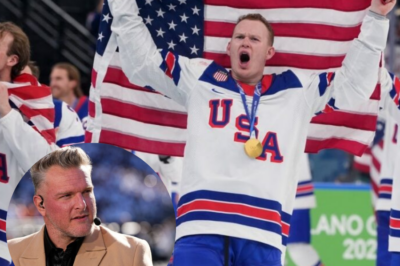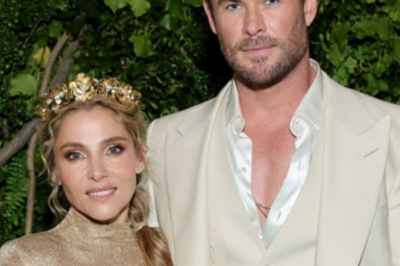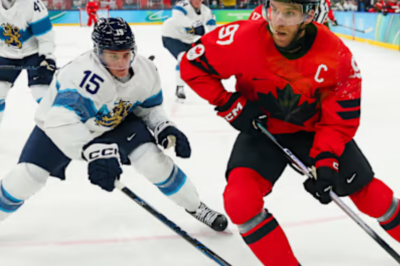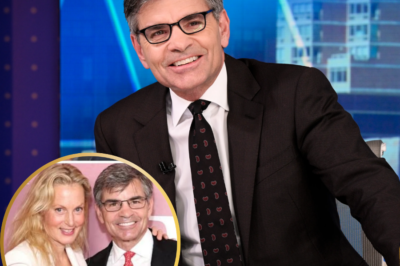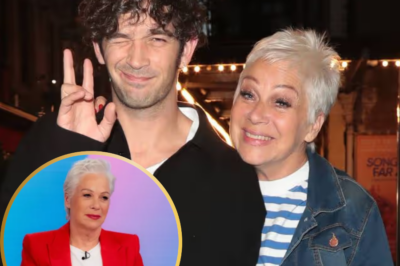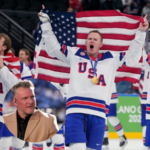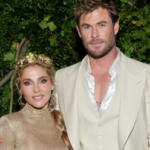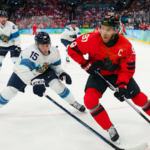Da Brat STANDS By R. Kelly—’Where Were the Parents?!’ Fans STUNNED By Her Shocking Take!
In the world of hip-hop and R&B, few topics have sparked as much controversy and passionate debate as the legacy of R. Kelly.
The once-celebrated singer-songwriter, known for his chart-topping hits and undeniable influence on the music industry, has faced a dramatic fall from grace following numerous allegations and subsequent convictions related to abuse and misconduct.
As society grapples with the impact of these revelations, the conversation has extended beyond the courtroom and into the realm of public opinion, ethics, and personal responsibility.
One voice that has added a new dimension to this ongoing debate is that of Da Brat, a pioneering female rapper known for her candidness and influential career.
In a recent interview, Da Brat addressed the controversy surrounding R. Kelly and the widespread movement to “mute” his music.
Her comments, particularly her refusal to stop listening to R. Kelly’s songs and her pointed question.
“Where were the parents in all this?” have reignited discussions about accountability, the separation of art from the artist, and the broader cultural implications of the R. Kelly scandal.
Da Brat’s Perspective: A Candid Conversation
During her appearance on a popular radio show, Da Brat was asked about her views on the “Mute R. Kelly” movement—a social campaign urging the public, radio stations, and streaming platforms to boycott R. Kelly’s music in light of his criminal convictions.
Rather than offering a simple yes or no answer, Da Brat delved into the complexities of the issue.
“I can’t stop listening to his music,” Da Brat admitted. “His songs are a part of my life, my memories, and my journey as an artist.
I understand what he’s done is wrong, but the music… it’s hard to just erase it.”
Her statement reflects a sentiment shared by many fans and artists who grew up with R. Kelly’s music.
For decades, his songs have been staples at weddings, parties, and on radio playlists. The emotional connection to his work complicates the decision to boycott his catalog entirely.
However, Da Brat didn’t stop there. She raised a question that has been echoed by others in the aftermath of the R. Kelly scandal:
“Where were the parents in all this?” By shifting some focus to the role of guardians and the broader community, Da Brat highlighted the multifaceted nature of the tragedy, suggesting that there are deeper systemic issues at play beyond the actions of one individual.
The “Mute R. Kelly” Movement: Origins and Impact
The “Mute R. Kelly” movement began in 2017 as allegations against the singer resurfaced and gained renewed attention through documentaries and investigative journalism.
Activists and survivors called for a cultural reckoning, arguing that continued support of Kelly’s music enabled a cycle of abuse and silenced victims.
The movement gained traction, prompting several radio stations and streaming services to remove or limit R. Kelly’s music.
High-profile artists who had previously collaborated with him expressed regret and distanced themselves from his legacy.
The debate over whether to separate the art from the artist became a national conversation, with passionate arguments on both sides.
The Role of Parents and Guardians: A Complex Question
Da Brat’s question, “Where were the parents in all this?” taps into a broader discussion about responsibility and prevention.
Many of R. Kelly’s alleged victims were underage at the time of their interactions with him, raising concerns about supervision, trust, and the vulnerabilities faced by young people in the entertainment industry.
Some critics argue that blaming parents shifts accountability away from the perpetrator and risks victim-blaming.
Others contend that parental oversight is a crucial line of defense against exploitation, especially in environments where fame and power can create dangerous imbalances.
Experts in child protection emphasize that while parents and guardians play a vital role, systemic changes are needed to safeguard minors in the music industry.
This includes stricter regulations, better education about consent and boundaries, and a culture that prioritizes the well-being of young artists over profit and celebrity.
![LISTEN] Da Brat Apologizes For Questioning Accusers In Aftermath Of 'Surviving R. Kelly' Documentary - TV One](https://tvone.tv/wp-content/uploads/sites/97/2019/01/Da-Brat.jpg?quality=100&strip=all)
The Cultural Dilemma: Can We Separate Art from the Artist?
Da Brat’s refusal to “mute” R. Kelly reignites the perennial debate: Should an artist’s personal actions dictate how we consume their art?
For many, R. Kelly’s music is inseparable from his legacy of abuse. They argue that playing his songs perpetuates harm and undermines the experiences of survivors.
Others, like Da Brat, draw a distinction between the man and his music.
They point to the impact his work has had on the genre, the memories it holds for millions, and the difficulty of erasing an artist so deeply woven into the fabric of popular culture.
This dilemma is not unique to R. Kelly. Throughout history, artists, musicians, and filmmakers have been celebrated for their talent while condemned for their personal actions.
The question of whether to separate art from the artist is deeply personal and often influenced by individual values, experiences, and the specific nature of the allegations involved.
The Response from the Public and the Industry
Da Brat’s comments have elicited a range of responses from fans, fellow artists, and industry insiders.
Some have praised her honesty and willingness to address uncomfortable truths. Others have criticized her for appearing to minimize the suffering of victims or for deflecting blame.
Social media platforms have become battlegrounds for these debates, with hashtags like #MuteRKelly and #SupportSurvivors trending alongside discussions about personal accountability, forgiveness, and the power of music to heal or harm.
The music industry itself remains divided. While some radio stations and streaming services have taken steps to limit R. Kelly’s exposure, his songs continue to be played in certain venues and remain available on many platforms.
The financial implications are significant, as royalties from his extensive catalog continue to generate income for the artist and his associates.
![Erykah Badu Defends R. Kelly? Da Brat Says, “Never Will I Stop Listening” [WATCH] - TV One](https://tvone.tv/wp-content/uploads/sites/97/2019/01/Untitled-design-20.jpg?quality=100&strip=all)
The Broader Implications: Lessons Learned and the Path Forward
The R. Kelly scandal has forced the music industry—and society at large—to confront uncomfortable truths about power, exploitation, and the mechanisms that allow abuse to go unchecked.
It has also sparked important conversations about survivor advocacy, the responsibilities of adults and institutions, and the need for systemic change.
Da Brat’s perspective, while controversial, underscores the complexity of these issues.
Her comments serve as a reminder that there are no easy answers and that healing and accountability require honest dialogue, empathy, and a willingness to examine all facets of the problem.
As the debate continues, one thing is clear: the legacy of R. Kelly will not be defined solely by his music or his crimes, but by the collective response of a culture determined to learn from the past and protect future generations.
Da Brat’s refusal to mute R. Kelly and her provocative question about parental responsibility have added new layers to an already complex conversation.
Her stance reflects the deep divisions within the music community and among fans, as well as the broader societal struggle to reconcile artistic achievement with moral accountability.
Whether or not one agrees with Da Brat, her comments have reignited essential debates about the role of parents and guardians, the responsibilities of the music industry, and the enduring power of art to evoke both joy and pain.
As the world continues to reflect on the lessons of the R. Kelly scandal, voices like Da Brat’s will remain an important part of the dialogue, challenging us to confront difficult questions and seek meaningful change.
News
Pat McAfee Celebrates U.S. Men’s Hockey Gold Medal Victory with Generous Bar Tab in Miami
Pat McAfee Celebrates U.S. Men’s Hockey Gold Medal Victory with Generous Bar Tab in Miami In a remarkable display of…
Benedict and Sophie: A Glamorous Night at the Bridgerton Season 4 Part 2 London Screening
Benedict and Sophie: A Glamorous Night at the Bridgerton Season 4 Part 2 London Screening In the bustling heart of…
Chris Hemsworth Calls His Move to the Australian Outback the “Greatest Decision” of His Life
Chris Hemsworth Calls His Move to the Australian Outback the “Greatest Decision” of His Life In a candid revelation that…
Connor McDavid’s Silver Medal Performance at the Winter Olympics: An Unparalleled Display of Skill and Leadership
Connor McDavid’s Silver Medal Performance at the Winter Olympics: An Unparalleled Display of Skill and Leadership The Winter Olympics are…
Breaking: In an industry full of quitters and sellouts, George Stephanopoulos just made a massive decision that proves he’s the last line of defense against the spin. After rumors of a major exit, he’s doubling down—and the timing of this announcement sends a very clear message to the powers that be.
Breaking: In an industry full of quitters and sellouts, George Stephanopoulos just made a massive decision that proves he’s the…
Denise Welch has just dropped the bombshell that she’s walking away from the Loose Women panel for good. But the real reason? She’s ditching the UK to reunite with her son Matty Healy in the US, and the details are heartbreaking.
Denise Welch has just dropped the bombshell that she’s walking away from the Loose Women panel for good. But the…
End of content
No more pages to load


